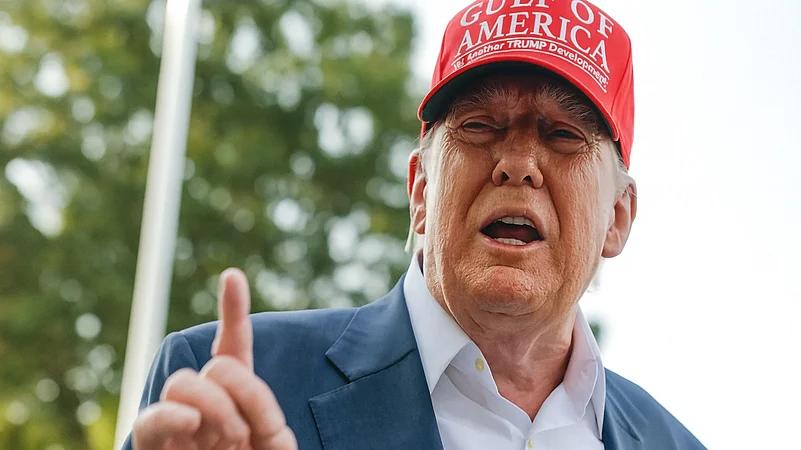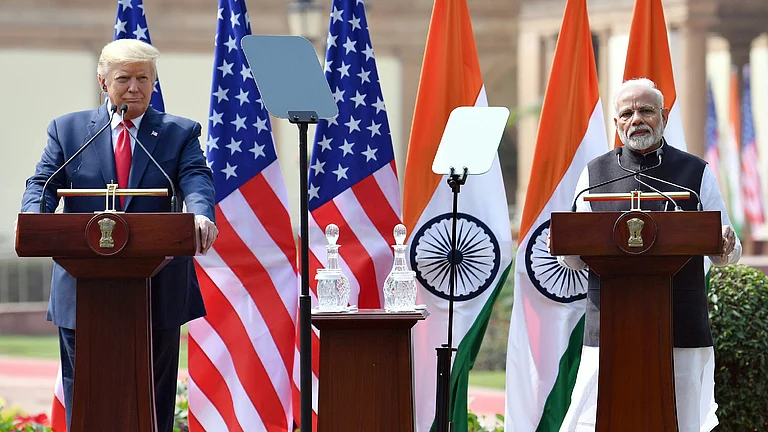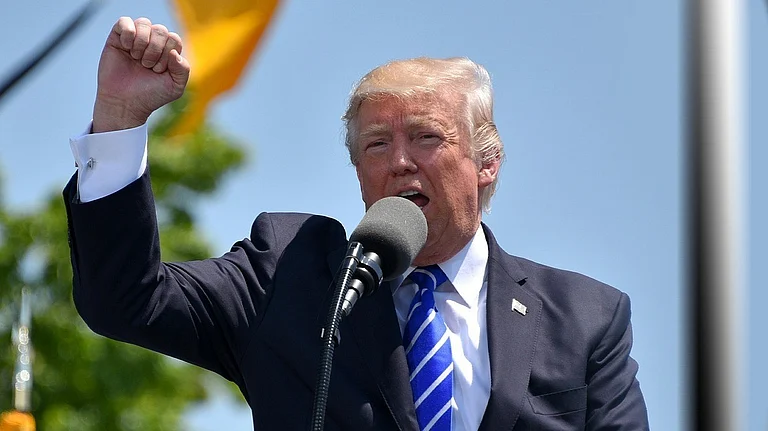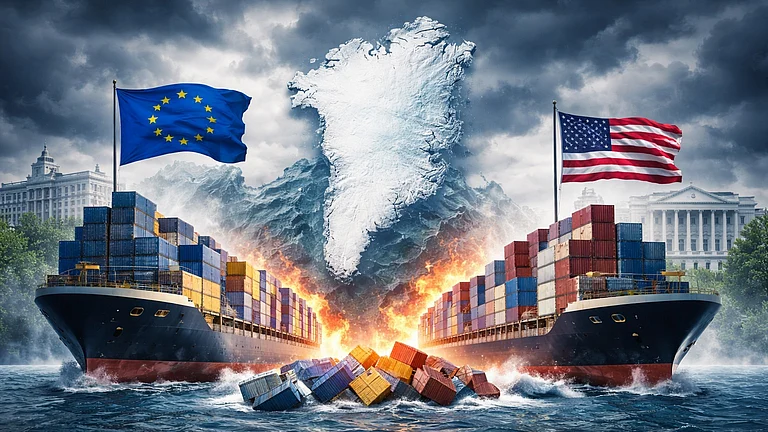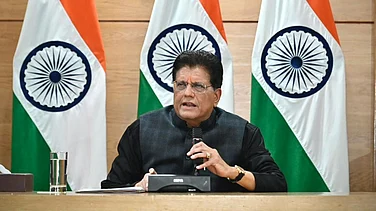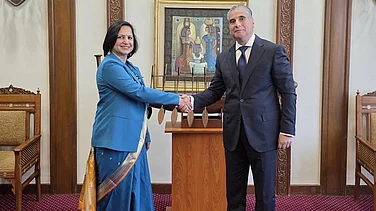President Donald Trump on Wednesday threatened Canada, a neighbouring country and one of Washington's important trade partners, with a 35% tariff on all goods imported into the US. The tariff will come into effect from August 1, 2025.
"As you will recall, the United States imposed Tariffs on Canada to deal with our Nation’s Fentanyl crisis, which is caused, in part, by Canada’s failure to stop the drugs from pouring into our Country," Trump wrote in a formal letter to Canadian Prime Minister Mark Carney.
"Instead of working with the United States, Canada retaliated with its own Tariffs. Starting August 1, 2025, we will charge Canada a Tariff of 35% on Canadian products sent into the United States, separate from all Sectoral Tariffs," Trump added.
Carney in a social media post said that throughout the current trade negotiations with the US, the Canadian government has steadfastly defended their workers and businesses and they "will continue to do so as we work towards the revised deadline of August 1."
He also stated that Canada has made vital progress to stop the scourge of fentanyl in North America.
Trump’s announcement comes amid a flurry of formal letters dispatched to nearly two dozen world leaders over the past week, each outlining the specific tariff rates their countries will face starting 1 August, should negotiations fail to yield a bilateral deal. In an NBC News interview, he suggested that blanket tariffs on other US trading partners will also increase.
While many of the letters have targeted smaller economies, Canada’s inclusion stands out due to the scale and depth of its economic relationship with the US. The two nations have been engaged in ongoing trade discussions in recent weeks, with hopes pinned on reaching a deal before the July deadline.
Responding to Trump's levies, the leader of the Conservative Party of Canada, Pierre Poilievre, called it an "unjustified attack" on Canada’s economy.
"Canada has long been a reliable partner and trusted friend to the United States. These tariffs will damage both our countries," he wrote on X.
Canada has been in the crosshairs of Trump even before he assumed office. Trump pledges to impose a 25% tariff on all Canadian and Mexican imports, saying they would come into force on inauguration day. He said in a social media post that the tariffs would remain until both countries stop drugs, particularly fentanyl, and people from illegally crossing American borders. The situation worsened after Canada decided to put retaliatory tariffs on the US under then-Prime Minister Justin Trudeau.
Carney also vowed to put similar levies on the US after he assumed office. To which Trump responded that he does not want cars, aluminium or steel from Canada. Carney and Trump's meeting at the Oval Office in May appeared genial but did not indicate that he plans to drop tariffs in the near future. Trump also asserted that while the US is always going to be friends with Canada, there was nothing Carney could say to convince him to immediately drop tariffs.
Canada is the top buyer of US exported goods, importing $349bn worth last year, according to Department of Commerce data. Meanwhile, Canada shipped $413bn worth of goods to the US last year, marking the third-highest source of foreign goods.
Meanwhile, India and the US are yet to finalise their much-anticipated trade agreement, as New Delhi holds firm on protecting its long-sensitive agricultural sector — an area Washington has been pushing to access more freely.
The US remains India’s largest export market, making the deal critical for Indian exporters. However, with President Trump’s latest decision to slap tariffs on Canada — a key ally and major trading partner — questions are beginning to surface over how long New Delhi can continue to bank on the goodwill and "friendship" it currently enjoys with the US administration.







